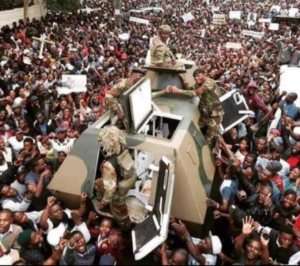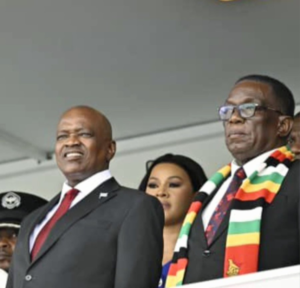SADC Rejects Zimbabwe’s Elections: A Bold Stand for Democracy

In a historic and unprecedented move, the Southern African Development Community (SADC) has boldly rejected Zimbabwe’s recent elections, citing a failure to meet the standards outlined in the country’s constitution, the Electoral Act, and SADC guidelines. This decision marks a significant moment in the pursuit of democratic values and the upholding of electoral integrity in the region.
Zimbabwe, a nation with a turbulent political history, has been striving for credible and transparent elections to establish a foundation for genuine democracy. However, recent events have cast a shadow of doubt over the electoral process in the country. SADC’s rejection of the polls sends a clear message that the international community is closely watching and is committed to holding nations accountable for upholding democratic principles.
Challenges to Electoral Integrity
The integrity of elections lies at the heart of any functioning democracy. Zimbabwe’s electoral woes have been brewing for some time, with concerns ranging from voter suppression to allegations of rigging. These issues have eroded public trust in the electoral process, leading to calls for reform and transparency.
SADC, a regional organization comprised of 16 member states, plays a pivotal role in promoting stability and democracy in the southern African region. Their decision to reject Zimbabwe’s election results demonstrates their commitment to ensuring that democratic processes are respected and upheld across member states.
Constitutional and Legal Shortcomings
One of the primary reasons cited by SADC for rejecting Zimbabwe’s elections is the failure to adhere to the country’s own constitution and Electoral Act. These legal frameworks are designed to safeguard the fairness and transparency of the electoral process, ensuring that the will of the people is accurately represented.
However, reports of irregularities and violations of these laws during the election process raised serious concerns. This includes allegations of voter suppression, manipulation of voter rolls, and a lack of impartiality in the administration of elections. Such breaches undermine the very essence of democracy and the principle of free and fair elections.
SADC Guidelines Ignored
In addition to the domestic legal standards, Zimbabwe failed to meet the guidelines set forth by SADC itself. These guidelines are intended to provide a regional framework for conducting credible and transparent elections. Their rejection of Zimbabwe’s election results highlights the significance of adhering to these guidelines for member states.
SADC’s decision to take such a bold stance against Zimbabwe’s elections underscores the organization’s commitment to upholding the principles of democracy and the rule of law. It also serves as a warning to other member states that flouting these principles will not be tolerated.
A Call for Reform
While the rejection of Zimbabwe’s elections is a significant step toward ensuring electoral integrity, it also serves as a call to action. Zimbabwe must take this opportunity to address the issues that have plagued its electoral system. Reforms are needed to restore public trust in the democratic process and bring the nation in line with its own laws and international standards.
The international community, including SADC, stands ready to support Zimbabwe in its efforts to reform its electoral system and build a stronger democracy. It is essential that all stakeholders, both domestic and international, work together to ensure that future elections in Zimbabwe meet the highest standards of transparency, fairness, and accountability.
SADC’s rejection of Zimbabwe’s elections is a powerful statement in defense of democracy and the rule of law. It underscores the importance of adhering to constitutional and legal standards, as well as regional guidelines, in the electoral process. While this rejection may be a setback for Zimbabwe, it also presents an opportunity for the nation to embark on a path of reform and restoration of trust in its democratic institutions.
The international community is watching closely, and Zimbabwe’s response to this rejection will be closely scrutinized. The ultimate goal is to ensure that the people of Zimbabwe have the opportunity to freely and fairly choose their leaders, in line with the principles of democracy that the nation aspires to uphold.



